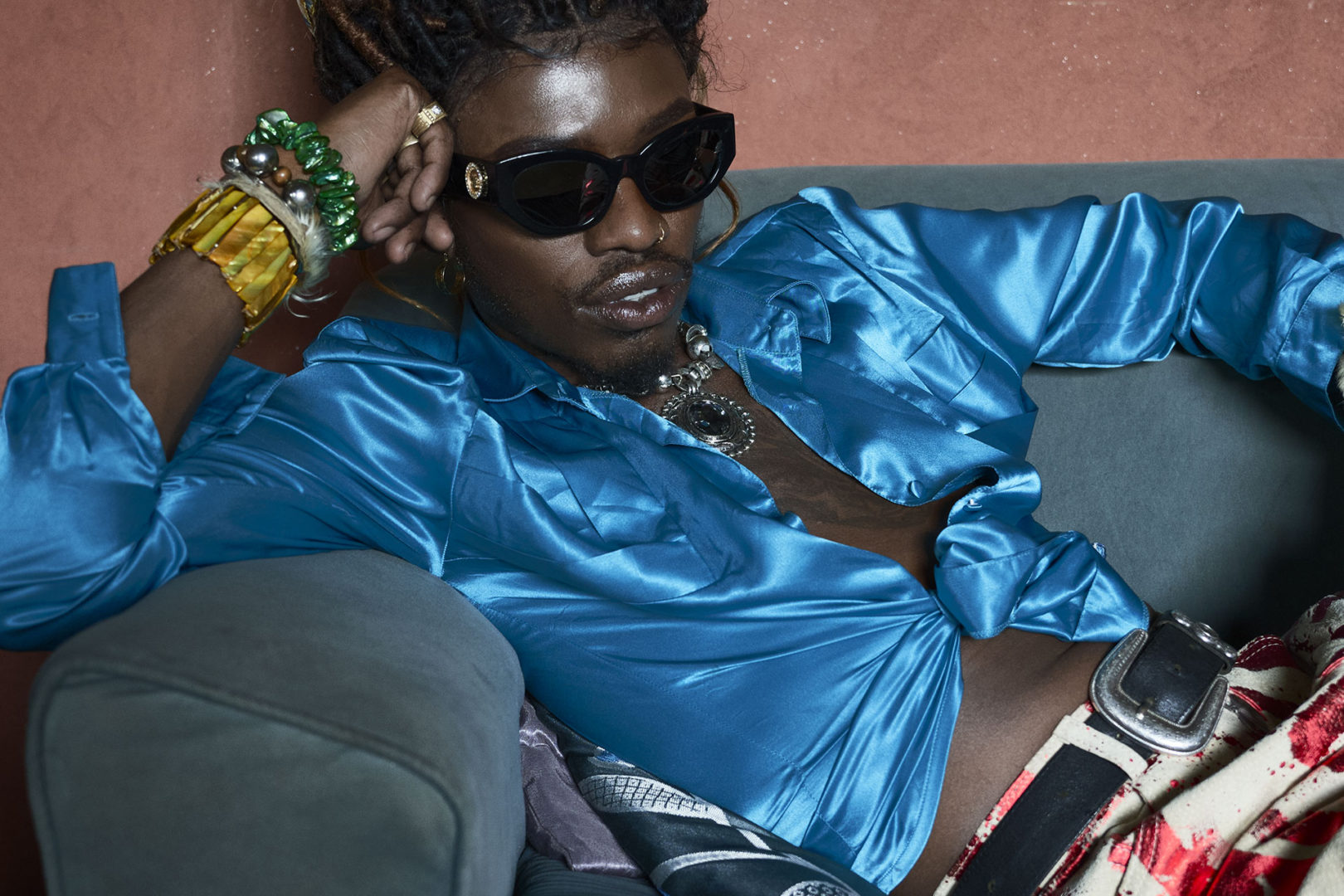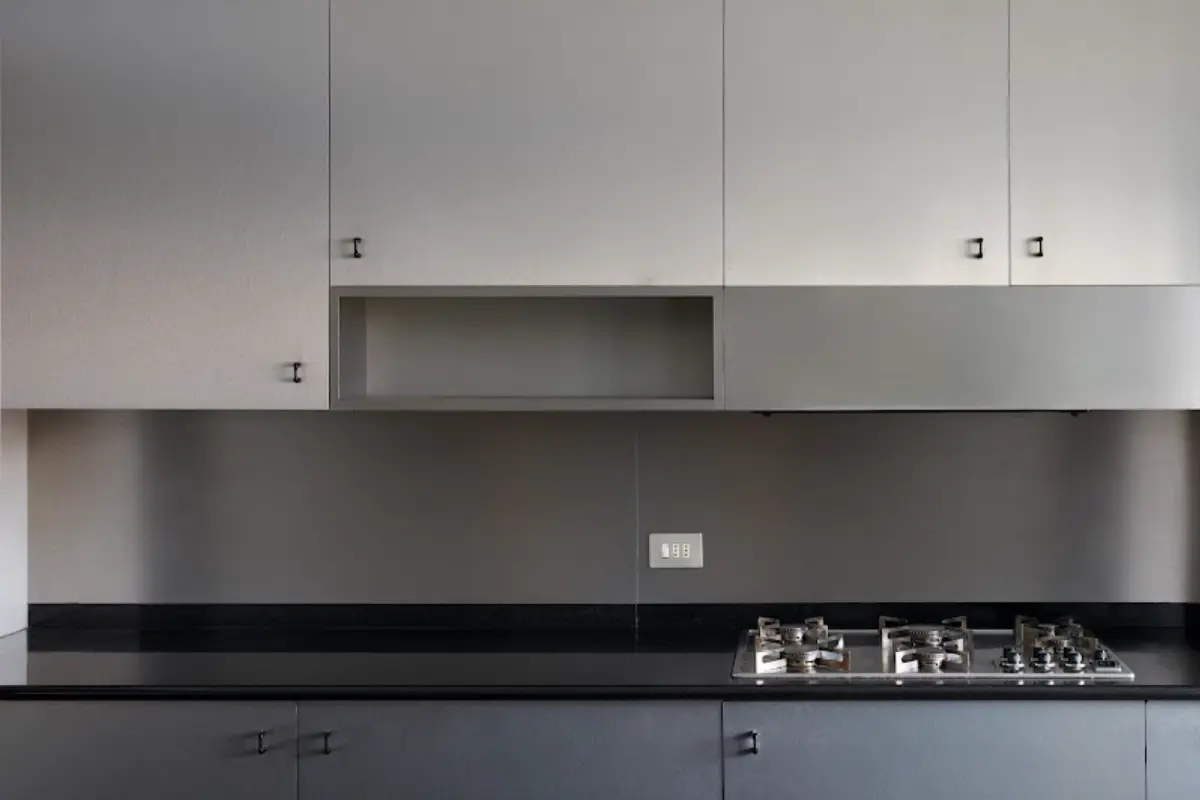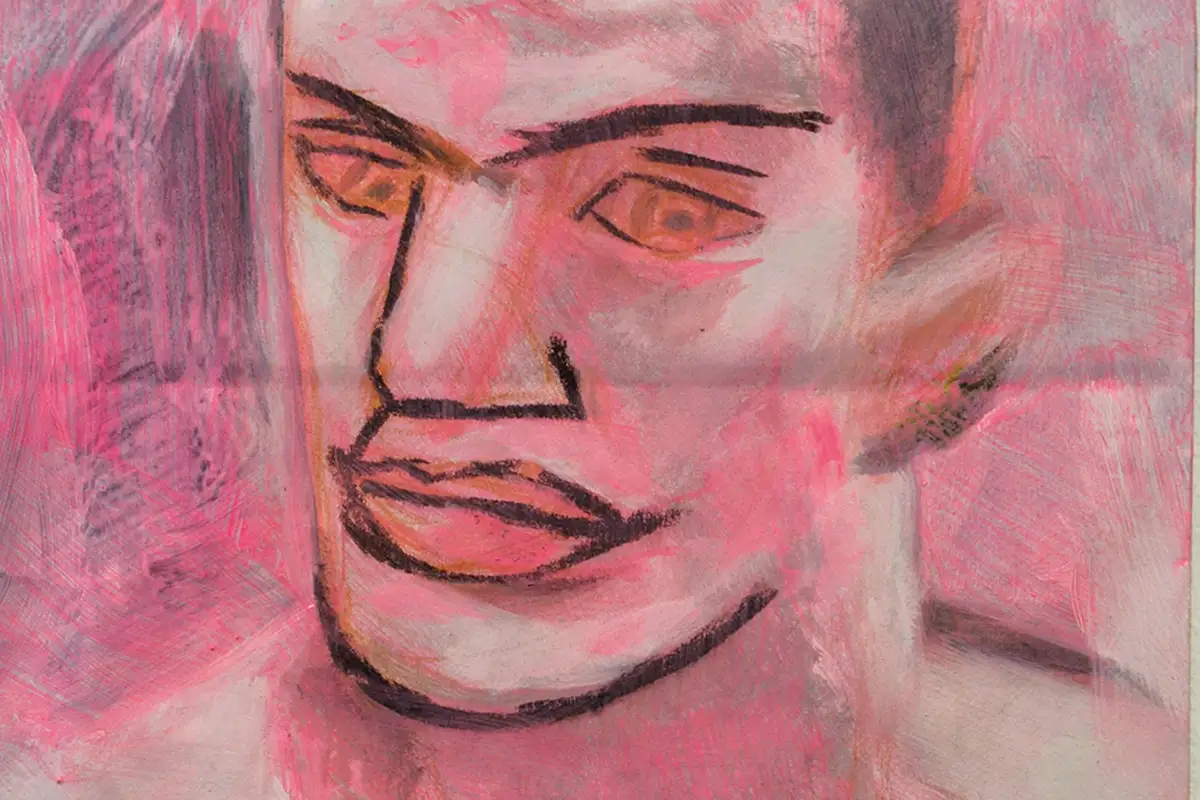Johannesburg’s queer community, the musical success and the recovery of the shaman tradition in the latest project Gwazamambuka. Desire Marea tells about the many identities that inhabit them
Lampoon interviewing Desire Marea
Desire Marea is a queer musical artist and creative at large. Their spiritual disposition has led them to create an album rooted on the premise of healing. Their debut album, Desire, is systematically formulated, taking listeners on a journey through Desire’s own life and process of healing. After an awakening that what they were doing was no longer fulfilling enough, Desire became a professional healer. They now give consultations, readings and help people to foster spiritual wellness in their internal self.
AD: At the moment, how are things going for you?
DM: There is a difficult transformation happening in my life right now but I’m all right. I’ve done a lot of things in the last few months and it has all happened quite quickly. It feels like there is something culminating at this moment in my life and it’s drawing me back to many internal things.
AD: Where are you based at the moment, do you see yourself staying there?
DM: Currently, I live in Amandawe on the East Coast of South Africa. Amandawe is by the coast; it’s a green and tropical place, it has a lot of hills and rivers. It feels rich in its natural beauty, it almost feels like you’re underwater. I don’t see myself staying here in Amandawe forever or even for a long while. I’d like to leave the country but I don’t know where, I’m still figuring that out. I think I would like to live somewhere that feels natural and unspoilt, some place I could thrive in.
AD: Have you always been interested in performing?
DM: In one way or another I was always performing. When I was in primary school I did public speaking and I was involved in competitions where I would give speeches. Then in high school, I actually majored in performing arts which led me to go on to study at an art school, which did influence me in a phenomenal way. At art school everyone is passionate about what they do and they are all so driven at a relatively early age. I found that environment stimulating and validating as well. It helped me to not feel outrageous for pursuing what I wanted to pursue because there were hundreds of other kids doing the exact same thing.
AD: I know that you’re into fashion. Why are clothes important to you?
DM: Clothes are just important. They can actualise their identity. They are powerful. I love fashion; I actually studied fashion for a little bit, I had dreams of becoming a fashion designer.
AD: Let’s talk about your music and your album, Desire. What has this process been like for you?
DM: Desire has been such a wild ride. Throughout making the album, I began to understand that I needed to get myself into a certain trance-like state to be able to actually deliver what I wanted to. Now that I am initiated as a healer, I’m more aware of this state and I can more easily put language to it. Whereas before, it was like a serial thing that would happen. With Desire, it asked me to go to dark places and to uncover dark truths about myself. There was a darkness about the truth that I wanted to tap into and I always knew I would be fine so I just thought, go, the truth is there within all that darkness. That process of surrendering to it healed me a lot.
AD: When I was listening to your album, for me it conjured up something holy. The organs and the instruments used have a kind of eeriness to them but it is also alluring too which made it interesting to listen to. How has religion and spirituality had an impact on the sound of your music?
DM: Being spiritual definitely influences my music all the time. We didn’t have a radio for a long time when I was growing up so my first experiences of listening to music were at the church. There was music on the tv but throughout my childhood the most reinforced phonetic memories are at church. As much as it was not something I necessarily enjoyed or gravitated to, it had a strong imprint on me and my choices texturally when I began to make music. With my spiritual disposition, I consider myself a spiritual person. I like to approach the things that I’m going through with a spiritual point of view. My world view and worldly things and experiences are processed by my spirit. These influences seem to combine and play a role in making the music come out the way it does.
AD: How would you describe the sound of your music?
DM: The sound is spiritual.
AD: In some ways, it reminded me of techno music. What are your influences?
DM: It’s wild because I don’t listen to techno but I do enjoy techno music though. I like the idea of it and I have been in spaces where I have been able to engage with techno so I also feel like it can be an invention of black people too but for me, it has never been something I’ve completely invested myself in. But, when you look at the essence of techno and where it is on a genetic level, it is connected to what I’m making. Techno is the crux of black spiritual music and all of its manifestations so you might think of my music as similar to techno. I like the idea of everyone being connected in that one place where we listen to music, somewhere where we can pull and draw inspiration from one another so we are not divorced.
But as for my influences, I listened to a lot of jazz when I was working on that album and avant garde classics. Ariana Grande is there for some reason because her album came out the year I was making that album. I loved Sweetener, it was my favourite album at that time. It was an internal, alone and isolated time for me so I wasn’t even listening to a lot of music because it was just trying to listen to myself for the sake of trying to find my truest voice.
AD: Where do you imagine your music to be played?
DM: Anywhere. I like the idea of people being romantic and being sensual to my music. If people want to have sex to my music, I’ll make it happen. I like the idea of the music being a soundtrack to a high vibrational activity or an activity of worship.
AD: Can you talk a bit about your involvement in the collective, FAKA?
DM: FAKA is a completely different dimension to the work I am doing now. It helped me find my voice and to do things with a lot more conviction and I grew a lot in all the work that we did. But as much as my work and my involvement with FAKA informed each other I like to think of them each as their own thing. There’s a whole dynamic FAKA has and there’s a whole new dynamic that I have and the development of FAKA has informed FAKA which has then informed my expression within FAKA. When I have to say something for myself, as an individual, it’s a different voice, it’s not a collective voice, well maybe it is a collective voice in a different sense, but it’s my personal voice.
AD: What is the music and clubbing scene like in South Africa?
DM: It’s a lot of gong but to be honest, I don’t club anymore. The scene I am involved in is traditional and there’s ceremonies where there’s music. We will beat drums, sing traditional songs, chant and channel spirits for different reasons depending on the ceremony. I think that’s the scene I am in right now. Nightlife, I just haven’t engaged in the last year to have a strong opinion on it.
AD: Can we talk a bit about earlier life? Could you have envisioned for yourself what you are doing now?
DM: In my early life, I just knew that my life would be this way. I always knew. I grew up far away in a rural part of the country, Amandawe is not a place that a lot of people even know about in the country and I just had these big dreams and this desire to leave and go to a city like Johannesburg to pursue my dreams.
Going to high school gave me that opportunity, when I went to boarding school in Johannesburg when I was at the art school, that’s where it felt like my life started and that’s where I started pursuing my life as it is now. I started going for auditions in anything; I acted in a lot of plays, I shot films that were screened globally, I performed in a series locally and just worked a lot at that time.
How I ended up is quite a miracle actually. My first thing I wanted to pursue was being a fine artist; I can draw well and I’m a painter and that’s the first thing I did when I was a child, my Dad was also a fine artist too. I think that the transition between being a fine artist to being a performer was maybe something that I needed to prove. Maybe that I even had some level of imposter syndrome about. In the domain of creativity, I think that it has just always been a part of my life.
AD: In making your album, it sounds as if you went through a real process of introspection into yourself. Can you talk a bit more about this?
DM: The truth is lacking a lot in a lot of work that exists right now. As an artist that makes unconventional music, I hope there is truth in what I put out there. For all the nice things that come with mainstream music, I feel like the truth is something that people can relate better with; the truth is also something that gives you longevity.
It might take a while for people to awaken to it and to realise they need music that is truthful for them. It’s a slower trajectory than just doing something mechanical but I still believe that it is the human soul that listens to music. The human soul seeks truth in everything, whether it’s good or bad.
So as long as I commit to that, I am fulfilled and content as a person. I am also quite certain that it’s something that a lot of other people will relate to, gravitate to and commit themselves to as well.
AD: Can you talk about the order of songs in the album, was this order intentional?
DM: There was a specific order. I opened with the Self Centre just because of the sense of occasion it brings for everyday. It just sets the tone and tells you where you are; that you’re in a sacred place and it welcomes you into that. I follow with Zibuyile Izimakade and You Think I’m Horny and then Thokozani.
Zibuyile is kind of reinforcing this idea of holiness and what the lyrics say is that, the gods have returned or that the eternal ones have returned and it goes straight from that to then songs about my human experience, You Think I’m Horny, Tavern Kween and then it goes into something deeper as it descends. It goes deeper and deeper from The Void, Uncle Kenny, Ntokozo, and Studies in Black Trauma, it goes even deeper again.
But then, I like to think that it lands in a place of hope – that was quite deliberate for me. I did want my listeners to go through the journey, my job as a person is to facilitate that experience because the music is supposed to be a healing experience. There is no way I can administer Iowa or leave you hanging. I feel as though I have to help you and guide the experience in a way that will heal you.
AD: We often hear about transparency. What does the word transparency mean to you?
DM: I think transparency is relative. For many people, transparency could be perhaps on an organisational level. For example, is the paperwork easy to read and understand for everybody? Is everyone upfront about certain things? But for myself, transparency as a Black African healer is about thinking maybe I should interrogate how I present myself to the world. Not just sensor myself but also sensor the lineage and the heritage of my bloodline and all the people that I channel in this work. As a fact, not as an afterthought but as the essence of my identity. I think for me, being transparent is about the nature of my identity and myself which is quite liberating and I hope it’s liberating for other people with similar experiences too.
AD: What does an average day look like for you at the moment? How do you chill out?
DM: Well currently, I’m working on new work so an average day is just working. I split my time between my practice and my creative work. In the day I do consultations, divinations for people, I do readings and after midday that’s usually when I have my first meal and then I go into my creative work at large and I do that until late. How do I chill? I chill and do nothing. I wouldn’t say I’m an overthinker but I enjoy just thinking and just thinking about lots of different things. In my thinking, that’s when I also get my different ideas.
AD: Can you tell me a bit about your current endeavour with Gwazamambuka?
DM: I graduated from my training in becoming a Shaman or a healer in August. I channel different spirits who heal people through the body, with the knowledge of medicine or with the ability to see where others can’t. I also consult through which I work to heal your awareness. When I consult, I’m in conversation with my ancestors and we try to figure out if there are any imbalances in your life or if there is anything that is urgent, any blockages or any piece of history that may be affecting your bloodline. I work to fortify spiritual wellness in the lives of people I see. I also perform a lot of rituals as well in my practice.
AD: What’s your biggest achievement?
DM: I am proud of a lot of things but maybe what’s at the top of my mind right now is accepting my calling and going into training. I had to disappear from the world for like half a year and be in direct contact with my spirits and my higher self. It was the most actualising experience for me and I’m proud that I had the courage to actually go in and do it.
AD: Is there anything else you’d like to add?
DM: Not really, but just get ready because I’m about to drop. I’m joking, I’m not about to drop right now but when I do drop, just be ready. That’s all, just be ready for a great year.
Desire Marea
This multidisciplinary artist from South Africa strives to create tense, challenging pieces that blend post-industrial sounds and club music styles, and address themes including loneliness, trauma, displacement, and displacement. Marea is also part of the performance art duo FAKA and released their debut solo album, Desire, in 2020. They earned their bachelor’s degree in Visual Communication at the Vega School after majoring in Performing Arts at the National School of the Arts in Johannesburg.




















